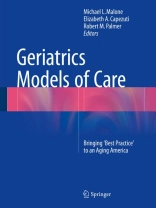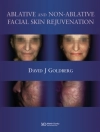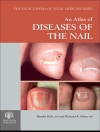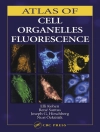This book describes geriatrics practice models that are used to guide the care of older adults, allowing seniors to remain at home, prevent functional disability and preserve quality of life. The models include specific interventions which are performed by health care workers to address the needs of older persons and their caregivers. These models respect patient values, consider patient safety and appreciate psychosocial needs as well. Divided into six parts that discuss hospital-based models of care, transitions from hospital to home, outpatient-based models of care and emergency department models of care, this text addresses the needs of vulnerable patients and the community.
Geriatric Models of Care is an excellent resource for health care leaders who must translate these programs to address the needs of the patients in their communities.
Table of Content
Section One: Hospital-based models of care:1. Acute Care for Elders.- 2. Hospital Elder Life Program.- 3. The ACE Consult program.- 4.The Advanced Dementia Consult program.- 5. Acute Care for Elders (ACE) Tracker and ‘e-Geriatrician’ telemedicine program.- 6. The NICHE program to prepare the workforce to address the needs of older patients.- Section Two: Models to address the needs of seniors in transition from hospital to home: 7. Care Transitions Intervention.-8. The Mary Naylor Advanced Practice Nurse model.- 9. Project BOOST.- Section Three: Outpatient-based models of care: 10. The GRACE model. 11. The Guided Care model.- 12. The Stanford Chronic Disease Self-Management program.- 13. Patient Centered Medical Home.- 14. Hospital at Home model.- 15. The Physician Home Visit program.-16. Geriatrics Evaluation and Management (GEM) program.- Section Four: Emergency Department models of care: 17. Geriatrics Emergency Department – the GEDI WISE program.- Section Five: Models which address the needs of vulnerable populations: 18. The Evercare program to care for vulnerable elders in skilled nursing facilities.- 19. The UCLA Dementia coordinator program.- 20. The Wisconsin Alzheimer’s Institute memory assessment program. 21. Memory Care Connections and LEEPS program for early memory assessment.- Section Six: Community related- models of care: 22. Stepping On-falls prevention program.- 23. Program of All-Inclusive Care of Elders (PACE model).- 24. Wisconsin Family Care social modelto support seniors in their homes.
About the author
Michael L. Malone, MD is the Medical Director of Aurora Health Care’s Senior Services program and Aurora at Home. He is a Clinical Adjunct Professor of Medicine at the University of Wisconsin School of Medicine and Public Health. He serves as the Section Head of Geriatrics at Aurora Sinai Medical Center in Milwaukee, WI as well as Aurora’s Geriatrics Fellowship Director. Dr. Malone is the Section Editor for Models of Geriatric Care, Quality Improvement, and Program Dissemination for the Journal of the American Geriatrics Society. He serves as the Chairman of the Public Policy committee at the American Geriatrics Society.
Elizabeth A. Capezuti, Ph D, RN, FAAN is the William Randolph Hearst Chair in Gerontology and Assistant Dean for Research at the Hunter-Bellevue School of Nursing of Hunter College of the City University of New York (CUNY). Dr. Capezuti is known for her work in improving the care of older adults by interventions and models that positively influence healthcare provider’s knowledge and work environment. Dr. Capezuti has disseminated the findings of 40 funded projects in five co-edited books and more than a hundred peer reviewed articles and book chapters.
Robert M. Palmer, M.D., M.P.H. is the John Franklin Chair of Geriatrics and the Director of the Glennan Center for Geriatrics and Gerontology at Eastern Virginia Medical School, where he is also Professor of Internal Medicine and Division Chief of Geriatric Medicine. Dr. Palmer has attained international attention for his research focused on improving the functional outcomes of hospitalization, patient safety and quality of care. Dr. Palmer was Principal Investigator of a grant from the John A. Hartford Foundation that established the effectiveness of a medical unit for acute care of elders (ACE Unit). He is the author of numerous publications including research articles, geriatric textbooks, book chapters, and scientific reviews. Dr. Palmer is Associate Editor of the Journal of the American Geriatrics Society (AGS). He is the Chair of the AGS Special Interest Group, Acute Hospital Care. In May, 2015 he will receive the Edward Henderson Award from the AGS.












